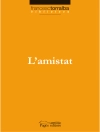The challenges we face today are unprecedented, from the existential crisis of climate change to the global security threats posed by aggression in Ukraine and elsewhere. Add to this the crisis of liberal democracy and we seem to be swirling in a state of moral disarray, unsure whether there are any principles to which we can appeal today that would be anything other than particularistic.
In contrast to this view, Markus Gabriel puts forward the bold argument that there are guiding moral principles for human behaviour. These guiding principles extend across cultures; they are universally valid and form the source of universal values in the twenty-first century. In developing what he calls a ‘New Moral Realism’, Gabriel breathes fresh life into the idea that humanity’s task on our planet is to enable moral progress through cooperation. It is only by achieving moral progress in a way that incorporates universal values – and thus embraces all of humanity – that we can avoid the abyss into which we will otherwise slide.
Written with verve, wit and imagination, Gabriel’s call for a new enlightenment is a welcome antidote to the value relativism and nihilism of our times, and it lays out a moral framework within which we can work together – as surely we must – to deal with the great challenges we now face.
Jadual kandungan
Preface to the English edition
Introduction
Chapter 1: What Values Are, and Why They Are Universal
The Good, the Bad and the Neutral: Basic Moral Rules
Moral Facts
The Limits of Free Speech: How Tolerant Is Democracy?
Morality Trumps Majority
Cultural Relativism: The Law of the Strongest
Boghossian and the Taliban
There Are No Judeo-Christian Values – And Why Islam Is Clearly Part of Germany
North Korea and the Nazi Machine
Value Pluralism and Value Nihilism
Nietzsche’s Ghastly Confusion(s)
Chapter 2: Why There Are Moral Facts but Not Ethical Dilemmas
Universalism is not Eurocentrism
Ageism Towards Children and Other Moral Deficits in Everyday Life
Moral Tension
Susceptibility to Error, a Fictional Messiah and the Nonsense of Postmodern Arbitrariness
Moral Feelings
Doctors, Patients, Indian Police Officers
The Categorical Imperative as Social Glue
‘A?’ Don’t Contradict Yourself!
Self-Evident Moral Truths and the Descriptive Problem of Ethics
Why the Federal Chancellor Is Not the Leader
The Day of Judgement, or, How We Can Recognize Moral Facts
With or Without God in the Kingdom of Ends
Beating Children Was Never Good, Not Even in 1880
Chapter 3: Social Identity – Why Racism, Xenophobia and Misogyny Are Evil
Habitus and Stereotypes: All Resources Are Scarce
Lifting the Veil of Dehumanization: From Identity Politics to Difference Politics
Coronavirus: Reality Strikes Back
A Different Side of Thuringia: In Jena, Racism Is Debunked
The Value of Truth (Without a Hall of Mirrors)
Stereotypes, Brexit and German Nationalism
The Effectiveness of Presumed Communities
The Society of Populism
The Contradictions of Left-Wing Identity Politics
Everyone is the Other: From Identity Politics to Difference Politics (and Beyond)
Indifference Politics: On the Way to Colour-Blindness
Chapter 4: Moral Progress in the Twenty-First Century
Slavery and Sarrazin
(Supposedly) Different Conceptions of Humans Do Not Justify Anything, Least of All Slavery
Moral Progress and Regression in the Time of the Coronavirus
The Limits of Economism
Biological Universalism and the Viral Pandemic
For a Metaphysical Pandemic
Morality Altruism
Human Beings: Who We Are and Who We Want to Be
Ethics for Everyone
Epilogue
Glossary
Notes
Index
Mengenai Pengarang
Markus Gabriel holds the chair for Epistemology, Modern and Contemporary Philosophy at the University of Bonn, and is also the Director of the International Center for Philosophy in Bonn and Academic Director at The New Institute in Hamburg.












